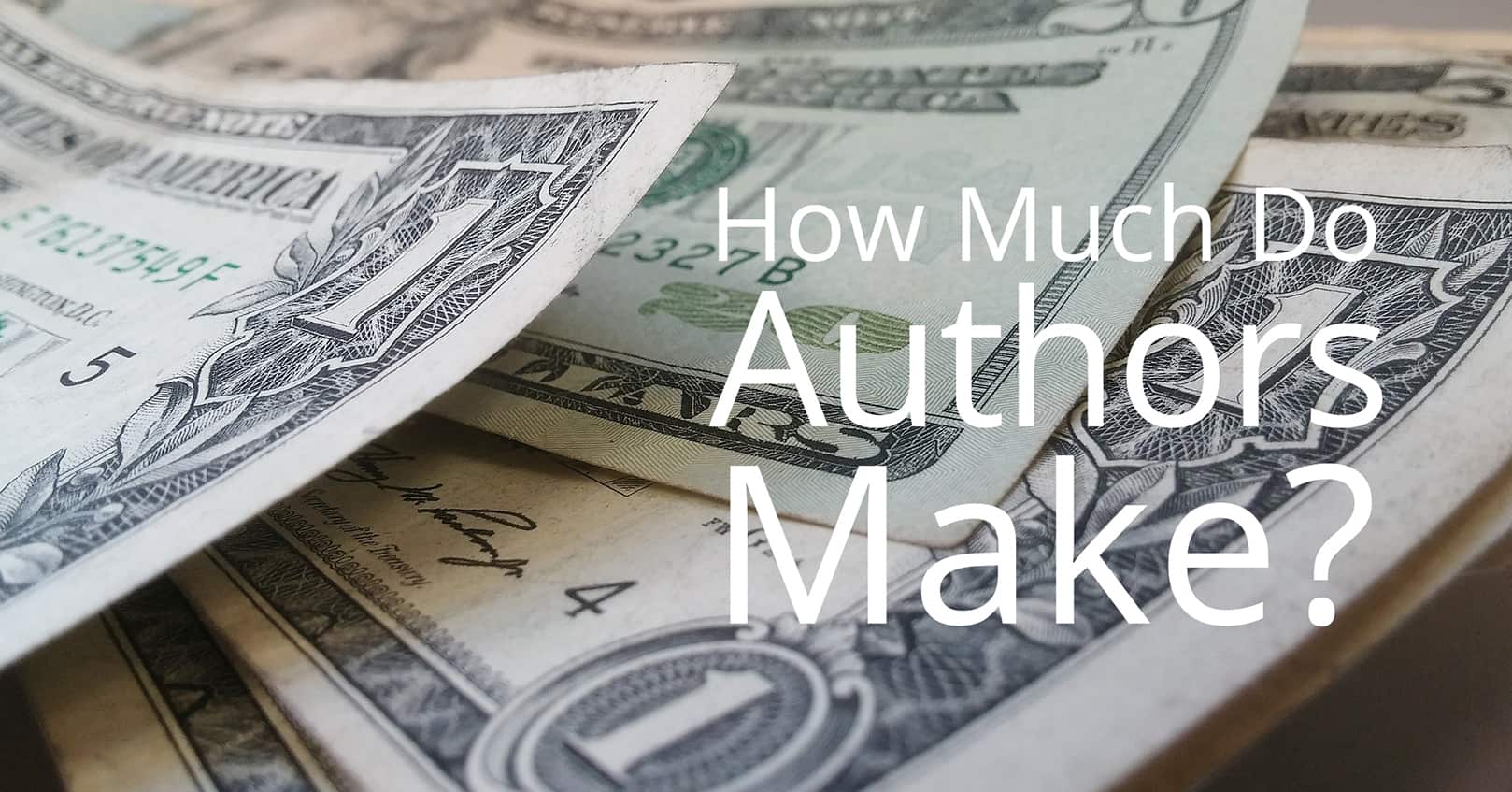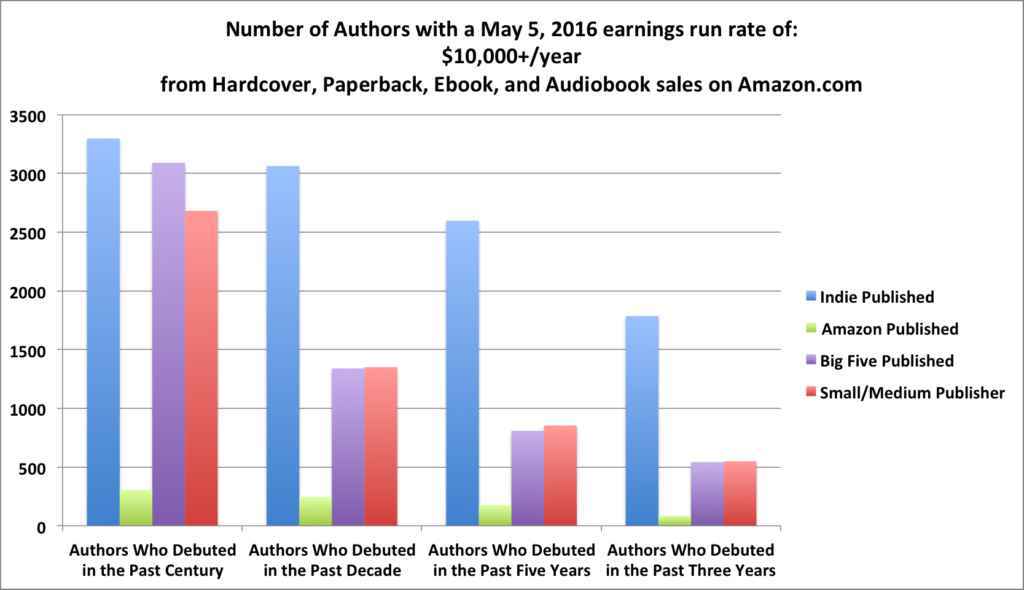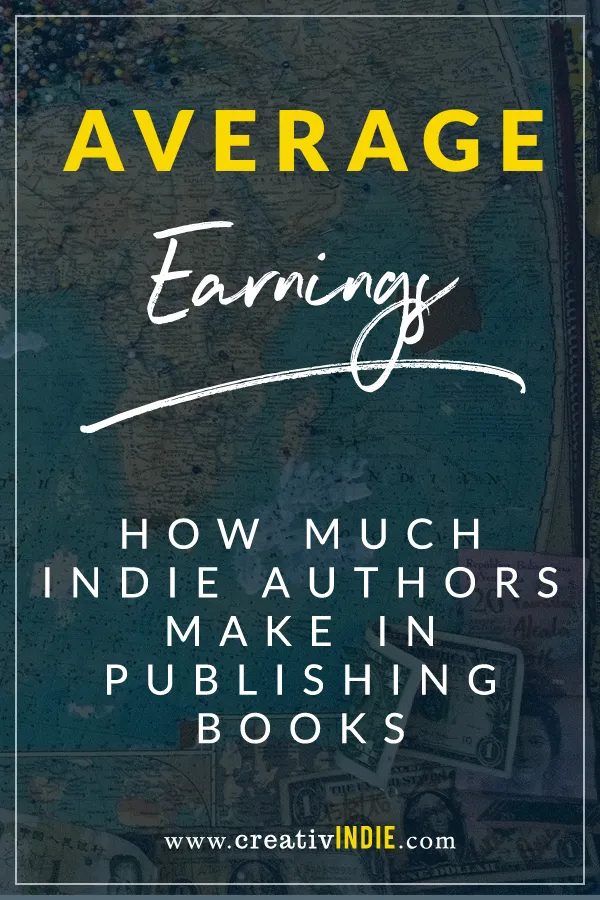Uncovering the Truth About Author Earnings
The notion that all authors are wealthy and successful is a common misconception. In reality, many authors struggle to make a living from their writing. The question of how much the average author makes is a complex one, with various factors influencing earnings. To provide a realistic understanding of author income, it’s essential to delve into the world of publishing and explore the financial realities of being an author.
For many aspiring writers, the idea of becoming a published author is a dream come true. However, the harsh reality is that making a living from writing is a challenging and often unpredictable pursuit. While some authors achieve great success and earn substantial amounts, others struggle to make ends meet. So, how much does the average author make? The answer is not straightforward, as earnings vary widely depending on factors such as genre, experience, and publishing platform.
According to a survey by the Authors Guild, the median income for full-time authors in the United States is around $20,000 per year. However, this figure includes authors who earn significantly more, as well as those who earn much less. In fact, the survey found that nearly 50% of authors earn less than $10,000 per year from their writing. These statistics highlight the need for authors to be realistic about their earning potential and to explore alternative revenue streams.
Despite the challenges, many authors are able to earn a good income from their writing. Some genres, such as romance and thriller, tend to be more lucrative than others, such as literary fiction or poetry. Additionally, authors who have built a strong online presence and have a loyal readership are often able to earn more than those who do not.
So, what can authors do to increase their earning potential? Building a strong online presence is essential, as is networking with other writers and industry professionals. Exploring alternative revenue streams, such as affiliate marketing or courses, can also help to boost earnings. By understanding the financial realities of being an author and taking steps to increase their earning potential, writers can build a successful and sustainable career.
Factors Affecting Author Income: Genre, Experience, and Platform
When it comes to determining how much the average author makes, several factors come into play. Genre, level of experience, and publishing platform are just a few of the key elements that can impact an author’s earnings. Understanding these factors is crucial for authors looking to maximize their income and build a successful writing career.
Genre is a significant factor in determining author earnings. Fiction authors, for example, tend to earn more than non-fiction authors. According to a survey by the Authors Guild, fiction authors earn a median income of $25,000 per year, while non-fiction authors earn a median income of $15,000 per year. This disparity is likely due to the fact that fiction books tend to sell more copies and have a wider appeal than non-fiction books.
Level of experience is another important factor in determining author earnings. Established authors with a strong track record of sales tend to earn more than debut authors. This is because established authors have built a loyal readership and have a proven track record of producing high-quality work. Debut authors, on the other hand, may struggle to gain traction and build an audience.
Publishing platform is also a critical factor in determining author earnings. Traditional publishing, self-publishing, and hybrid publishing all offer different earning potential for authors. Traditional publishing typically offers advances and royalties, while self-publishing offers higher royalty rates but requires authors to handle all aspects of publishing. Hybrid publishing offers a combination of traditional and self-publishing models.
For example, authors who publish traditionally may earn a 10% to 15% royalty rate on each book sale, while self-published authors can earn up to 70% royalty rate on each sale. However, self-published authors must also handle all marketing and distribution costs, which can eat into their earnings. Hybrid publishing models, on the other hand, offer a combination of traditional and self-publishing benefits, but may require authors to pay fees for services such as editing and cover design.
Understanding these factors is essential for authors looking to maximize their earnings and build a successful writing career. By considering genre, level of experience, and publishing platform, authors can make informed decisions about their writing career and increase their earning potential.
Average Author Income: A Closer Look at the Numbers
So, how much does the average author make? The answer to this question can vary widely depending on a number of factors, including genre, experience level, and publishing platform. According to a survey by the Authors Guild, the median income for full-time authors in the United States is around $20,000 per year. However, this figure includes authors who earn significantly more, as well as those who earn much less.
A closer look at the numbers reveals that author income can vary significantly depending on genre. For example, romance authors tend to earn more than authors in other genres, with a median income of around $30,000 per year. Science fiction and fantasy authors, on the other hand, tend to earn around $20,000 per year. Non-fiction authors, including those who write memoirs, biographies, and self-help books, tend to earn around $15,000 per year.
Experience level is also a significant factor in determining author income. Established authors with a strong track record of sales tend to earn more than debut authors. According to the Authors Guild survey, authors with 10 or more years of experience tend to earn around $30,000 per year, while those with less than 5 years of experience tend to earn around $10,000 per year.
Publishing platform is also an important factor in determining author income. Traditional publishing, self-publishing, and hybrid publishing all offer different earning potential for authors. According to a survey by the Self-Publishing Formula, self-published authors tend to earn around 70% of the cover price of their books, while traditionally published authors tend to earn around 10% to 15% of the cover price.
Here are some average income ranges for authors in different genres and with different levels of experience:
- Romance authors: $20,000 to $50,000 per year
- Science fiction and fantasy authors: $15,000 to $30,000 per year
- Non-fiction authors: $10,000 to $25,000 per year
- Established authors (10+ years of experience): $30,000 to $50,000 per year
- Debut authors (less than 5 years of experience): $5,000 to $15,000 per year
These figures are based on data from reputable sources, including the Authors Guild and the Self-Publishing Formula. However, it’s worth noting that author income can vary widely depending on a number of factors, including genre, experience level, and publishing platform.
How to Increase Your Earnings as an Author
While the financial reality of being an author can be challenging, there are several strategies that can help increase earnings. Building a strong online presence is essential for authors looking to boost their income. This can be achieved by creating a professional website, engaging with readers on social media, and producing high-quality content that showcases their writing skills.
Networking with other writers and industry professionals is also crucial for authors looking to increase their earnings. Joining writing groups, attending conferences and workshops, and participating in online forums can help authors connect with potential readers, agents, and publishers. These connections can lead to new opportunities, such as book deals, speaking engagements, and freelance writing work.
Exploring alternative revenue streams is another way for authors to increase their earnings. Affiliate marketing, for example, allows authors to earn commissions by promoting products or services related to their writing niche. Online courses and workshops can also provide a lucrative source of income for authors who are experts in their field.
Some popular alternative revenue streams for authors include:
- Affiliate marketing: promoting products or services related to their writing niche and earning commissions on sales
- Online courses and workshops: teaching writing skills or sharing expertise in a particular area
- Freelance writing: writing articles, blog posts, or other content for clients
- Speaking engagements: giving talks or presentations on writing-related topics
- Book formatting and design: offering services to help other authors format and design their books
By diversifying their income streams and building a strong online presence, authors can increase their earnings and achieve financial stability. While the financial reality of being an author can be challenging, with the right strategies and mindset, it is possible to succeed and earn a good income from writing.
The Role of Self-Publishing in Author Earnings
Self-publishing has become a viable option for many authors in recent years, offering higher royalty rates and greater creative control. However, the impact of self-publishing on author earnings is a complex issue that depends on various factors, including the author’s genre, target audience, and marketing efforts.
One of the main benefits of self-publishing is the potential for higher earnings. Self-published authors can earn up to 70% of the cover price of their books, compared to traditional publishing royalties of around 10% to 15%. However, self-publishing also requires authors to handle all aspects of publishing, including editing, formatting, cover design, and marketing.
Marketing and distribution are two of the biggest challenges facing self-published authors. Without the support of a traditional publisher, self-published authors must find ways to reach their target audience and get their books into the hands of readers. This can be a time-consuming and costly process, especially for authors who are new to the industry.
Despite the challenges, many self-published authors have found success and are earning a good income from their writing. According to a survey by the Self-Publishing Formula, self-published authors who earn more than $50,000 per year tend to have a strong online presence, a loyal readership, and a well-planned marketing strategy.
Some popular self-publishing platforms for authors include:
- Amazon Kindle Direct Publishing (KDP): offers high royalty rates and easy distribution to Amazon’s vast customer base
- Smashwords: allows authors to publish their work to major e-book retailers like Apple iBooks and Barnes & Noble
- Lulu: offers a range of self-publishing services, including e-book and print-on-demand distribution
While self-publishing can be a lucrative option for authors, it’s essential to approach it with a clear understanding of the challenges and opportunities involved. By building a strong online presence, networking with other writers, and exploring alternative revenue streams, self-published authors can increase their earnings and achieve success in the industry.
Traditional Publishing vs. Self-Publishing: Which is More Lucrative?
The debate between traditional publishing and self-publishing has been ongoing for years, with each side having its own set of advantages and disadvantages. When it comes to author earnings, the choice between traditional publishing and self-publishing can have a significant impact on how much an author can earn. In this section, we will explore the pros and cons of each approach and examine the data to determine which one is more lucrative.
Traditional publishing typically involves working with a publishing house, which handles editing, printing, and distribution. In exchange for these services, the publishing house takes a significant portion of the book’s profits, usually in the form of royalties. The amount of royalties an author can earn from traditional publishing varies depending on the publishing house, the genre, and the author’s level of experience. On average, authors can expect to earn around 10-15% of the book’s net sales.
Self-publishing, on the other hand, allows authors to maintain creative control and publish their work independently. Self-published authors can earn up to 70% of the book’s net sales, depending on the platform and pricing. However, self-publishing also requires authors to handle editing, formatting, cover design, and marketing themselves, which can be time-consuming and costly.
So, which approach is more lucrative? The answer depends on several factors, including the author’s genre, experience level, and marketing efforts. According to a survey by the Authors Guild, traditionally published authors tend to earn more than self-published authors, with median earnings of $20,300 compared to $4,500. However, self-published authors who are able to build a large following and market their work effectively can earn significantly more, with some authors reporting earnings of $100,000 or more per year.
Ultimately, the choice between traditional publishing and self-publishing depends on an author’s goals, preferences, and circumstances. While traditional publishing can offer more prestige and marketing support, self-publishing provides more creative control and potential for higher earnings. As the publishing industry continues to evolve, it’s likely that we will see more authors experimenting with hybrid models that combine the benefits of both traditional and self-publishing.
When considering how much the average author makes, it’s essential to keep in mind that earnings can vary widely depending on the publishing route chosen. Whether traditionally published or self-published, authors who are able to build a loyal readership and consistently produce high-quality work are more likely to achieve financial success in the long run.
Author Income: A Long-Term Perspective
When it comes to author earnings, it’s essential to take a long-term view. While it’s tempting to focus on short-term gains, building a successful writing career requires patience, persistence, and a willingness to adapt to changing market conditions. By taking a long-term perspective, authors can increase their earnings potential and achieve financial stability.
One key factor in long-term author earnings is building a loyal readership. Authors who can establish a dedicated fan base are more likely to see increased sales and royalties over time. This can be achieved through consistent production of high-quality work, engagement with readers through social media and other channels, and a willingness to experiment with new genres and formats.
Another important factor is the ability to adapt to changing market conditions. The publishing industry is constantly evolving, with new trends and technologies emerging all the time. Authors who can stay ahead of the curve and adjust their strategies accordingly are more likely to succeed in the long term. This might involve exploring new formats, such as audiobooks or e-books, or experimenting with different marketing and promotion techniques.
It’s also important to note that author earnings can be unpredictable and may vary from year to year. Some authors may experience a surge in sales and royalties one year, only to see a decline the next. By taking a long-term view, authors can smooth out these fluctuations and achieve a more stable income stream.
So, how much does the average author make in the long term? While it’s difficult to provide a precise figure, research suggests that authors who can build a loyal readership and consistently produce high-quality work can earn significantly more than those who do not. According to a study by the Authors Guild, authors who have been writing for 10 years or more can earn up to 50% more than those who are just starting out.
Ultimately, the key to long-term author earnings is to focus on building a sustainable writing career, rather than trying to make a quick profit. By prioritizing quality, engaging with readers, and adapting to changing market conditions, authors can increase their earnings potential and achieve financial stability.
As the publishing industry continues to evolve, it’s likely that we will see new opportunities and challenges emerge for authors. By taking a long-term view and focusing on building a loyal readership, authors can position themselves for success and achieve their financial goals.
Conclusion: The Financial Reality of Being an Author
In conclusion, the financial reality of being an author is complex and multifaceted. While some authors may earn significant amounts of money, many others struggle to make a living from their writing. Understanding the factors that influence author earnings, such as genre, experience, and publishing platform, is crucial for anyone looking to build a successful writing career.
As we’ve seen, the answer to the question “how much does the average author make” is not a simple one. Average author income varies widely depending on a range of factors, and even successful authors may experience fluctuations in their earnings from year to year. However, by taking a long-term view and focusing on building a loyal readership, authors can increase their earnings potential and achieve financial stability.
Whether you’re a seasoned author or just starting out, it’s essential to approach your writing career with a clear-eyed understanding of the potential earnings and challenges involved. By being realistic about the financial realities of being an author, you can make informed decisions about your writing career and take steps to maximize your earnings potential.
Ultimately, the key to success as an author is to focus on producing high-quality work and building a loyal readership. By doing so, you can increase your earnings potential and achieve financial stability, regardless of whether you choose to pursue traditional publishing or self-publishing. Remember, the financial reality of being an author may be complex, but with persistence, dedication, and a willingness to adapt, you can achieve your writing goals and build a successful career.
As the publishing industry continues to evolve, it’s likely that we will see new opportunities and challenges emerge for authors. By staying informed and adapting to changing market conditions, you can position yourself for success and achieve your financial goals. Whether you’re looking to supplement your income or build a full-time writing career, understanding the financial realities of being an author is essential for achieving your goals.








